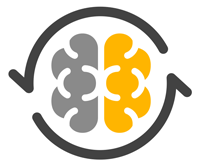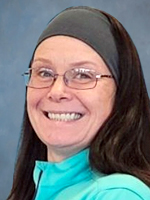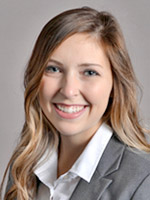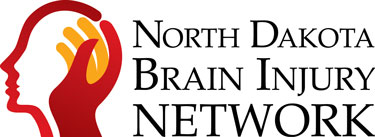NDBIN Newsletter – Fall 2025
2025 Virtual Concussion Symposium
 September 19
September 19
9:00 am – 3:150 pm Central
FREE and Virtual
Join the North Dakota Brain Injury Network (NDBIN) for a full day of expert-led presentations focused on the latest in concussion research, emerging trends, clinical practice strategies, and collaborative care models. This annual event brings together professionals, survivors, caregivers, and advocates committed to improving concussion care.
Can't attend live? No problem!
Registered participants will receive access to a password-protected portal with speaker slides and session recordings available for 30 days after the event. You may also receive FREE CEUs for approved providers for live and recorded submissions.
Book Club
 Wednesdays starting September 3
Wednesdays starting September 3
9:30 – 11:30 am Central
Edgewood 55+
Grand Forks, North Dakota
Carly Endres, senior project coordinator with NDBIN, is starting a brain injury book club on September 3 which will run Wednesdays through December. Attend when you are able. This session's book is called The One and Only Ivan.
This book club is helpful for:
Survivors: Great way to build up social skills, meet new people, and learn something new in the process. You may also find reading can help increase your attention in other areas.
Participants will read 25-30 pages weekly before attending book club and then during book club engage in word work, word games, socialization, snacks, etc. This will be done with the support of a Certified Brain Injury Specialist and volunteer students in the fields of social work, occupational therapy, speech therapy, and physical therapy. Paperbacks with the text will be available to all participants.
Caregivers: Opportunity to meet others caring for a survivor of brain injury or enjoy some time to yourself!
Deadline to register is August 27 at noon.
Certified Brain Injury Specialist (CBIS) Training
![]() September 16 & 17
September 16 & 17
8:30 am – 4:30 pm Central both days
NDBIN is hosting a FREE Certified Brain Injury Specialist (CBIS) Training. The training will be hosted on Zoom.
Requirements and Eligibility
The CBIS certification is developed and administered through the Brain Injury Association of America (BIAA) and the requirements/eligibility are as follows:
-
Applicants must have 500 hours of currently verifiable direct contact experience with an individual or
individuals with brain injury.
Note: BIAA does offer a provisional certification if you have not met these hours yet. - Experience can be paid employment and/or academic internship. Volunteer work and self-recovery does not qualify.
- The qualifying experience must have included formal supervision or have been conducted while the applicant operated under a professional license. If the applicant is operating under a professional license, then he/she must be in good standing.
- Applicants must have a high school diploma or equivalent.
Cost
Although this training session is free, there is a cost for the certification exam, if you want to take it. The fee for the exam depends on the number of attendees.
Group of 30+ candidates: $225
Group of 5-29 candidates: $250
Group of 1-4 candidates: $325
Your credit card will not be charged until our group number is determined by BIAA. Cost of textbooks vary by format. Participants will have access to the NDBIN study portal. For questions regarding submitting an application, email BIAA customer service at customerservice@biausa.org.
Deadline to register for training and to apply for the exam is September 5 @ 4:00 pm Central.
Brain Injury Peer Support Training
![]() September 23
September 23
12:30 – 3:30 pm Central
Soul Solutions (1801 38th Street South)
Fargo, North Dakota
NDBIN is offering free brain injury peer support training. This FREE, three-hour course for peer support specialists will cover strategies for working with survivors of brain injury. Upon completion of this in-person training, peer supports will receive their brain injury endorsement. Register by September 15 at noon. If you have questions, contact Carly at carly.endres@und.edu or (701) 777-4008.
North Dakota Brain Injury Advisory Council Meeting
November 20 – Virtual
Noon – 3:00 pm Central
The North Dakota Brain Injury Advisory Council meets quarterly to discuss and plan brain injury policies and services. The meetings are open to the public.
NDBIN New Hire – Mychal Cook
 Mychal Reanne Cook is a passionate advocate for brain injury survivors and a peer support specialist with NDBIN.
After sustaining multiple brain injuries herself, Mychal discovered the power of community, faith, and
resilience in her recovery journey. She now dedicates her life to walking alongside other survivors, helping
them navigate resources, build confidence, and find hope. Mychal also serves as the secretary for the board of
directors for both The Beginning Project ND and the Southwest
North Dakota Alano Club, where she works to create recovery-friendly spaces and opportunities for healing in her
community.
Mychal Reanne Cook is a passionate advocate for brain injury survivors and a peer support specialist with NDBIN.
After sustaining multiple brain injuries herself, Mychal discovered the power of community, faith, and
resilience in her recovery journey. She now dedicates her life to walking alongside other survivors, helping
them navigate resources, build confidence, and find hope. Mychal also serves as the secretary for the board of
directors for both The Beginning Project ND and the Southwest
North Dakota Alano Club, where she works to create recovery-friendly spaces and opportunities for healing in her
community.
Being a Peer Support Specialist
As a peer support specialist for NDBIN, Mychal provides one-on-one support, encouragement, and resource navigation to brain injury survivors and their families. Her role bridges the gap between clinical services and real-life recovery by offering:
- Peer mentorship and encouragement rooted in lived experience.
- Guidance to community resources and support groups.
- Practical strategies for daily living and brain health.
- Advocacy and connection to help survivors find their voice.
For Mychal, this role is about more than support – it's about helping survivors know they are not alone and that life after brain injury can still be meaningful, joyful, and full of possibility.
Brain Injury and the State Penitentiary Podcast
 Chainz 2 Changed is a podcast hosted by the North Dakota State
Penitentiary (NDSP) and Andrea Sailer, resource facilitator for NDBIN, was the guest speaker for their March 17,
2025 segment.
Chainz 2 Changed is a podcast hosted by the North Dakota State
Penitentiary (NDSP) and Andrea Sailer, resource facilitator for NDBIN, was the guest speaker for their March 17,
2025 segment.
Sailer speaks with two inmates at the NDSP during the episode, titled North Dakota Brain Injury Network Examines Dread and Zach. This podcast episode discusses brain injury, the impact it can have on those incarcerated, and how the impact of brain injury may be a contributing factor to how people end up incarcerated. Sailer also touches on the screening process and how people can discover if they have had a brain injury. Strangulation, overdose, or getting hit in the head are just some of the ways someone could sustain a brain injury. Often, incarcerated populations have experienced brain injuries without ever being diagnosed.
Paving a Path to Resilience
NDBIN receives a grant to provide resources to incarcerated brain injury survivors. Read the article.
